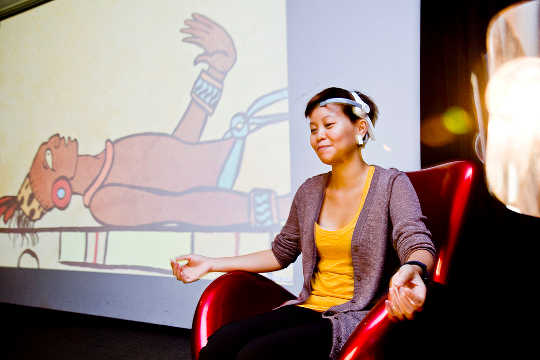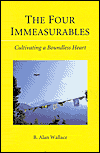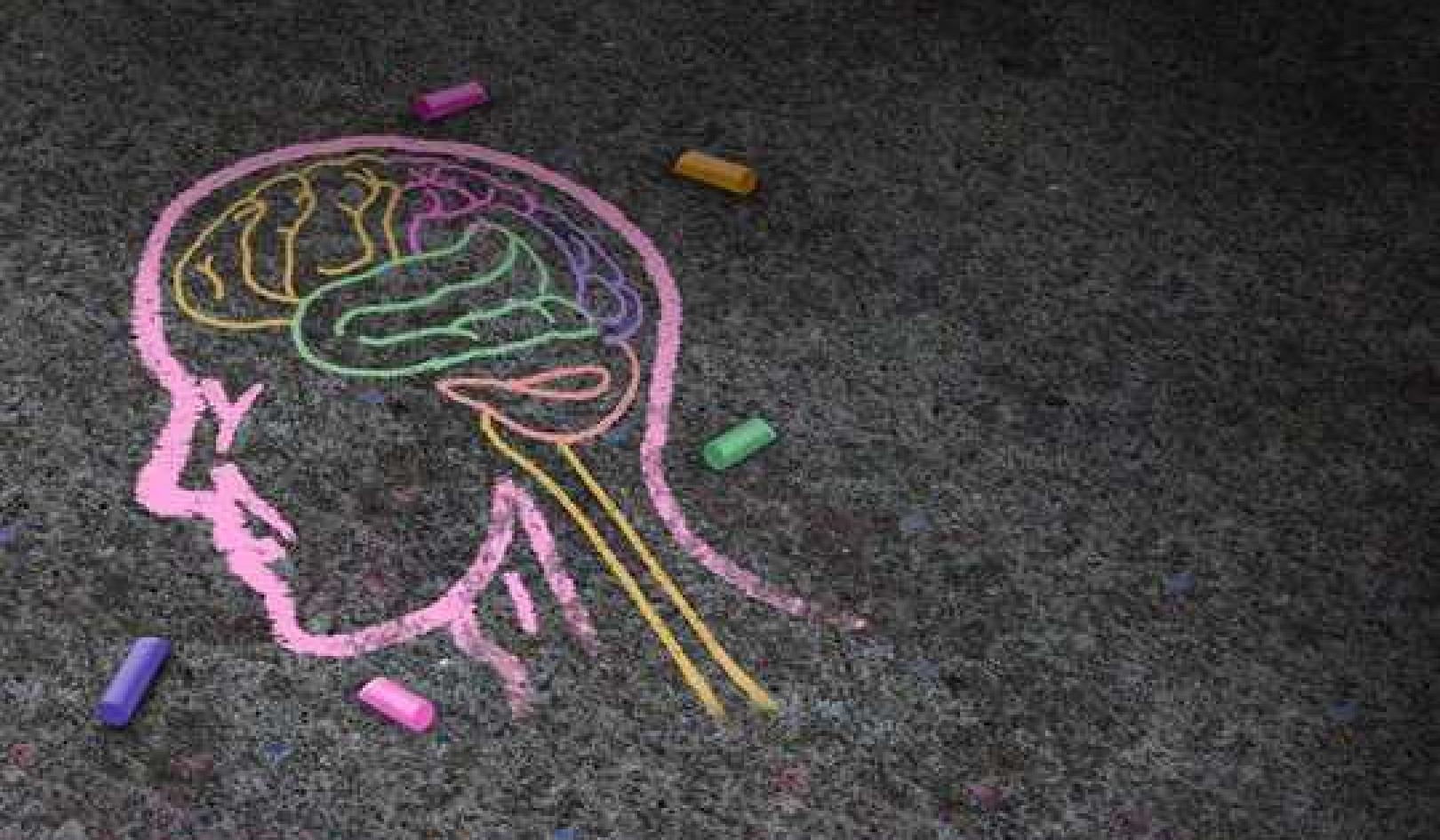
It is possible for the mind to become disempowered. It feels then as if reality is just a given, and all we can do is try to deal with it. Events seem simply to present themselves to a disempowered mind. It can recognize an event as an atrocity or as something wonderful, but all it can do is to like it or lump it. There is no sense of participation.
The disempowered mind feels it has no choice about what it attends to. It's compulsive. I once witnessed a tragic case, when I was invited by David Spiegel, a psychiatrist at Stanford, to observe a group session of women who had breast cancer. Probably all of them were going to die of breast cancer, but one of the women expressed it so poignantly.
She had recently encountered a Time Magazine article that presented some apparently intractable statistics: If you have metastatic breast cancer, your chances of survival are marginal. This woman was now in that stage of cancer, and seeing this, her world was shattering before her eyes. She had thought she might have a chance, until she saw that article. And she felt devastated, completely disempowered. She said she wished she had never seen the article; it made her feel like she was helplessly lost.
"My mind is torturing me with these statistics," she wept, "I wish I had some peace of mind, I wish I could control my mind. I wish I knew how to meditate." Upon witnessing this heartfelt plea, I wished that she had begun meditating earlier.
Controlling and Empowering The Mind By Training The Attention
Training the attention is definitely one way to begin empowering the mind. There is an enormous power in being able to control the attention. Then, as we gain power over our attention, we come to know from our experience, not just as a belief, that we have power over the reality we attend to. And our reality starts to shift.
By subduing one's own mind, all dangers and fears are subdued. That is something definitely within our reach, not just for advanced contemplatives in Tibet. In fact, empowering the mind is almost a misnomer. It's not as if you are doing something special to the mind to make it big and powerful. You are simply removing impediments, so the inherent power of the mind can spring forth.
There are, of course, further reaches of the mind's empowerment in samadhi. When those impediments are removed in very deep samadhi, then not only does what you attend to become your reality, but generations of Buddhist contemplatives have said that the mind has the potential to alter physical reality by the power of its attention. The tables are radically turned.
One wonderful way that power manifests is through healing. There are a myriad of other possibilities discussed in The Path of Purification. These are not easy accomplishments, but nothing could persuade me that such potentials of the mind do not exist. It's high time in our civilization to recognize the profound role of participation and attention in the reality we experience.
Controlling & Empowering The Mind By Stabilizing The Mind
When the power of the stabilized mind is united with the wisdom that comes from understanding the conceptually designated nature of reality, the result is extraordinary. Geshe Rabten, one of my foremost teachers, told me of one of his retreats many years ago. He was meditating on emptiness and gained some realization of this lack of inherent existence of phenomena. In other words, if phenomena were inherently existent, they would be absolutely objective and unrelated to the mind. But the Buddhist teachings on emptiness free us from this compulsion, recognizing there are no intrinsic realities in this world, no autonomous substances. That realization, to phrase it differently, points to the participatory nature of reality.
Geshe Rabten was gaining access to an insight that there is nothing in and of itself that is independent of any kind of conceptual designation, nothing that is devoid of participation. Once you begin to realize that, it suggests an extraordinary, perhaps even limitless malleability in the nature of reality. Implicitly the mind becomes enormously empowered. This is the power of insight, different from the power of samadhi.
Another access to empowerment of the mind is faith. This is strongly emphasized in Judaism, Christianity, and Islam. Faith opens doors, just as samadhi and insight do. It's time that we started opening all of them, because our society has largely succumbed to the disempowerment of the mind.
Candrakirti, an Indian Buddhist sage who lived perhaps in the seventh century, was a great master of the teachings on emptiness, one of the greatest in all Buddhist history. There is a story that once when he was giving teachings on emptiness and the role of conceptual designation, a student had some reservations about it. So Candrakirti took out a piece of charcoal and drew a picture of a cow on the wall of his hut. And then he milked it!
Helping (or Harming) Others With Your Mind
Is it possible that physical reality can be so manipulated that one might actually do damage with one's mind by directing enmity towards another person? The Buddhist tradition says yes, and through the power of prayer one can also help others, even at a great distance, as claimed in Christianity, in which whole congregations may direct their prayers to others in great distress. That practice is encouraged in Western religions, and they are not doing it just to make their own minds better. The intention is that the prayer may be effective. I think it can be.
I emphasize the positive theme of helping others with one's mind, because that's something actually worth practicing. When a group of people do this together in concert, the effect is like many people shining many flashlights onto one spot, all from different angles. That spot gets warmer. That's one way to do it. Another way is to ask one person who has very deep samadhi to pray; that's like directing a laser. The Tibetans often do this, and it was also done traditionally in Judaism and Christianity.
If one person shines a light, it may be very difficult to see any effect. But don't count it out. You may really be surprised by what could happen. Not that you should accept as dogma that prayer works. Dogma is boring. But it would be really interesting just to try this and see what happens.
Reprinted with permission of the publisher,
Snow Lion Publications. ©1999.
www.snowlionpub.com
Article Source
The Four Immeasurables: Cultivating a Boundless Heart
by B. Alan Wallace.
 This book is a rich suite of practices that open the heart, counter the distortions in our relationships to ourselves, and deepen our relationship to others.
This book is a rich suite of practices that open the heart, counter the distortions in our relationships to ourselves, and deepen our relationship to others.
Info/Order this paperback book. Also available in a Kindle edition.
About the Author
 B. Alan Wallace, Ph.D., is a lecturer and one of the most prolific writers and translators of Tibetan Buddhism in the West. Dr. Wallace, a scholar and practitioner of Buddhism since 1970, has taught Buddhist theory and meditation throughout Europe and America since 1976. Having devoted fourteen years to training as a Tibetan Buddhist monk, ordained by H. H. the Dalai Lama, he went on to earn an undergraduate degree in physics and the philosophy of science at Amherst College and a doctorate in religious studies at Stanford. He is the author of numerous books including A Guide to the Bodhisattva Way of Life, Buddhism with an Attitude, The Four Immeasurables, Choosing Reality, Consciousness at the Crossroads. and Buddhism and Science.
B. Alan Wallace, Ph.D., is a lecturer and one of the most prolific writers and translators of Tibetan Buddhism in the West. Dr. Wallace, a scholar and practitioner of Buddhism since 1970, has taught Buddhist theory and meditation throughout Europe and America since 1976. Having devoted fourteen years to training as a Tibetan Buddhist monk, ordained by H. H. the Dalai Lama, he went on to earn an undergraduate degree in physics and the philosophy of science at Amherst College and a doctorate in religious studies at Stanford. He is the author of numerous books including A Guide to the Bodhisattva Way of Life, Buddhism with an Attitude, The Four Immeasurables, Choosing Reality, Consciousness at the Crossroads. and Buddhism and Science.
Related Books
at InnerSelf Market and Amazon



























